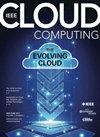基于可再生能源和任务调度的混合云资源管理的深度强化学习方法
Q1 Computer Science
引用次数: 9
摘要
使用云计算在互联网上交付应用程序服务已经获得了迅速的发展。自2019冠状病毒病全球大流行开始以来,在家工作计划和在线业务的增加对计算资源产生了更多需求。许多企业和组织正在扩展其私有数据中心,并为其IT基础设施使用混合或多云环境。由于对计算资源的需求不断增加,能源消耗和碳排放已成为一个紧迫的问题。可再生能源已被公认为以化石燃料为基础的棕色能源的清洁和可持续替代品。然而,由于可再生能源可获得性的间歇性,在可再生能源约束和期限下自动高效地调度任务带来了许多挑战。传统的启发式任务调度算法不能快速适应能量可用性变化和任务到达的随机性。在这方面,本工作旨在通过深度强化学习构建一种新的调度策略,该策略在由多个私有云和公共云组成的地理分布式混合多云环境中自动应用工作负载转移和云爆发等调度技术。我们的主要目标是最大限度地利用可再生能源,避免违反最后期限限制。我们还引入了用户可配置的超参数,以实现云成本、完工时间和利用率的多目标调度。实验结果表明,该调度方法可以根据可再生能源可用性的变化动态地实现上述目标。本文章由计算机程序翻译,如有差异,请以英文原文为准。
A Deep Reinforcement Learning Approach to Resource Management in Hybrid Clouds Harnessing Renewable Energy and Task Scheduling
The use of cloud computing for delivering application services over the Internet has gained rapid traction. Since the beginning of the COVID-19 global pandemic, the work from home scheme and increased business presence online have created more demand for computing resources. Many enterprises and organizations are expanding their private data centres and utilizing hybrid or multi-cloud environments for their IT infrastructure. Because of the ever-increasing demand for computing resources, energy consumption and carbon emission have become a pressing issue. Renewable energy sources have been recognized as clean and sustainable alternatives to fossil-fuel based brown energy. However, due to the intermittent nature of availability of renewable energy sources, it brings many challenges to automatically and efficiently schedule tasks under renewable energy constraints and deadlines. Task scheduling with traditional heuristic algorithms are not able to adapt quickly with changing energy availability and stochastic task arrival. In this regard, this work aims at building a novel scheduling policy with deep reinforcement learning, which automatically applies scheduling techniques like workload shifting and cloud -bursting in a geographically distributed hybrid multi-cloud environment consists of multiple private and public clouds. Our primary goals are maximizing renewable energy utilization and avoiding deadline constraint violations. We also introduce user configurable hyper-parameters to enable multi-objective scheduling on cloud cost, makespan and utilization. Our experiment results show that the proposed scheduling approach can achieve the aforementioned objectives dynamically to varying renewable energy availability.
求助全文
通过发布文献求助,成功后即可免费获取论文全文。
去求助
来源期刊

IEEE Cloud Computing
Computer Science-Computer Networks and Communications
CiteScore
11.20
自引率
0.00%
发文量
0
期刊介绍:
Cessation.
IEEE Cloud Computing is committed to the timely publication of peer-reviewed articles that provide innovative research ideas, applications results, and case studies in all areas of cloud computing. Topics relating to novel theory, algorithms, performance analyses and applications of techniques are covered. More specifically: Cloud software, Cloud security, Trade-offs between privacy and utility of cloud, Cloud in the business environment, Cloud economics, Cloud governance, Migrating to the cloud, Cloud standards, Development tools, Backup and recovery, Interoperability, Applications management, Data analytics, Communications protocols, Mobile cloud, Private clouds, Liability issues for data loss on clouds, Data integration, Big data, Cloud education, Cloud skill sets, Cloud energy consumption, The architecture of cloud computing, Applications in commerce, education, and industry, Infrastructure as a Service (IaaS), Platform as a Service (PaaS), Software as a Service (SaaS), Business Process as a Service (BPaaS)
 求助内容:
求助内容: 应助结果提醒方式:
应助结果提醒方式:


